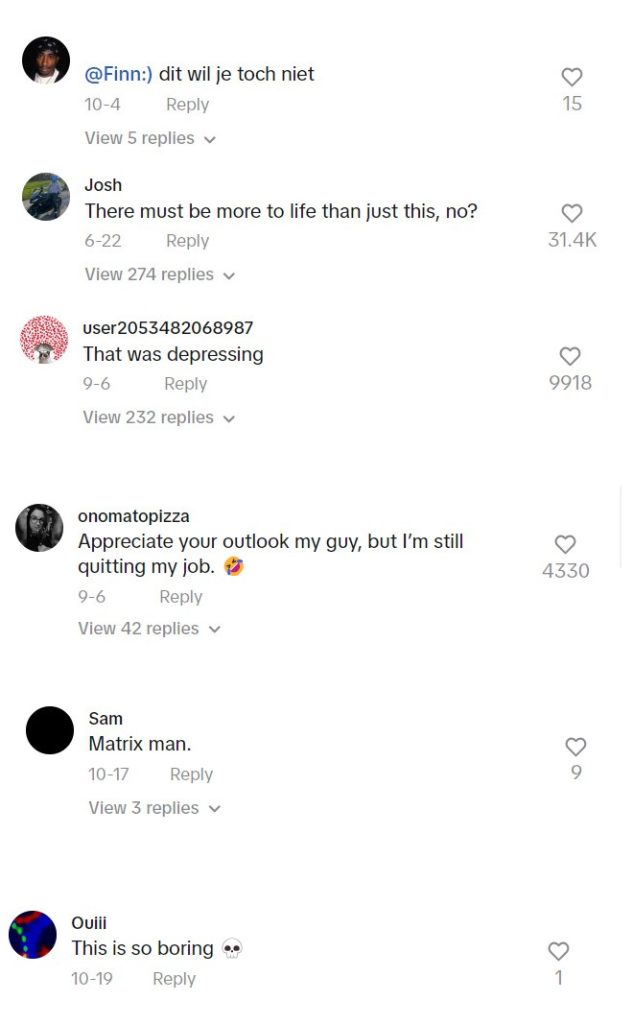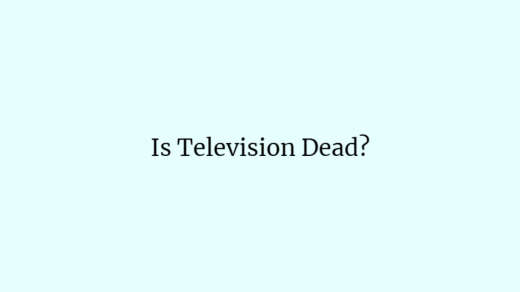Everyone that has used TikTok or Instagram knows them: TikTok bro’s. For everyone that does not know what I mean with that term: I define a TikTok bro as a TikTok influencer that makes TikTok’s about their everyday lives, their routines, their goals and their progress, but in a bit of unrealistic and maybe even unhealthy way. They are known for TikTok’s about their daily routine, meal plan or workout schedule. They often are focused on things like fitness, finance and food. They use terms like “escaping the matrix”, “financial freedom” and call people “sheep”. They get up at 4:30 in the morning, trade in crypto, and want to be making above 10k a month before they’re 18 years old.
Of course, now I’m generalizing this type of content a little bit, but it is true that there is a lot of this type of content available on TikTok and Instagram. If you interact with this type of content sometimes, chances are you will end up in an infinite loophole of motivational TikTok bro’s saying to you that you’re a loser if you’re not a millionaire before 30. I think that the way some people look at life has changed due to the enormous amount available of this content, especially among young male adults. I have seen this among my own surroundings and friend group, but also online. I think this is an interesting different way to look at the (negative) effect social media influencers can have on people, other than the example we all know, (young) girls and women having an unrealistic standard for their life and body image. Let me explain.
First of all, it has given some people an unrealistic view on finance, wealth and work. These “TikTok bro’s” I mean often talk a lot about finance. In my opinion, they make it look like you can only be successful and thus happy in life by not going to college, starting your own business, trading in stocks or crypto, or all of these combined. At the same time, they talk really negative about working 9 to 5, working under a boss, and going to college. I think this gives the people quite a distorted view on what to expect from themselves and what to be satisfied with. Because, realistically speaking, almost all people will end up working a “regular” job. I always thought that people did not really believe such things, until I recently saw something on TikTok. I saw a TikTok from @hubs.life, where he showed a day in his life just working a 9 to 5 job, living alone with his dog, nothing special. He called it: “normalizing the 9 to 5 life”. I thought this was so interesting, and also very refreshing after all the other “motivational” content. Also the man in the video looked very happy and his life looked very nice and peaceful. I was happy until I opened the comments. In the comments people where burning him up. It made me realize that people really took this seriously.

Another thing this type of influencers talks a lot about, is lifestyle and fitness. They talk a lot about healthy living, eating and working out. This may seem like a good thing at the first sight, but what makes me sceptical is that it seems just unrealistic to me. These people often have unrealistic schedules, starting their day at like 4:30 a.m. and ending it at 11 p.m., yet still being productive all day. Their work-out schedules also often seem unrealistic, working out everyday of the week. This kind of schedules just aren’t possible to keep up with for almost all people, that just work a job and maybe have families. It however does give these people the feeling that they aren’t doing good if they are not keeping with a schedule like that. One more thing is that these influencers often are in really good shape, and have extreme fitness goals. This can give people unrealistic expectations about themselves. I have seen this among friends of myself, that started working out because of influencers like this. They however had unrealistic goals, and when not reaching those, it frustrated and demotivated them.

At last I would like to add a little disclaimer. I do think that motivational content like I talked about can be a good thing. I think that it can help people get their lives together, create routines and set goals. However when it is taken too far, it can give people unrealistic expectations of themselves, and be unhappy with the way they live. It’s also important for the user to take this type of content with a grain of salt.




Recent Comments